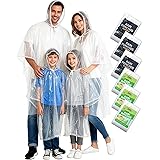Table of Contents
- Emergency kits tailored to individual needs
- Effective communication plans
- Physical and mental health readiness
- Financial preparedness and backup resources
Emergency kits tailored to individual needs
When we talk about emergency kits, most people picture a standard set of supplies. But let me tell ya—one size does not fit all in emergency preparedness. I’ve seen folks overlook the importance of customizing their kits to meet individual needs, and this can be a costly mistake.
First off, consider any medical requirements or allergies within your household. If someone in your family has diabetes, for instance, your kit should include necessary medications and snacks that won’t spike blood sugar. Customized kits ensure everyone in your family will have what they need when it matters most.
Next, think about comfort items. No one enjoys being uncomfortable, especially in a stressful situation. Make sure to include personal items that can make a tough situation just a little bit more bearable. This could be as simple as a favorite blanket or as essential as toiletries.
Lastly, pets are part of the family too. Don’t forget to pack food, water, and supplies for your furry friends. A well-prepared kit is a tailored kit, and it can make all the difference in an emergency.
Effective communication plans
I can’t emphasize enough how critical effective communication is during an emergency. Yet, so many people underestimate its importance. I always say, “Plan now, avoid panic later.” One key element is having a communication list. It should have contact numbers for all family members, neighbors, and local emergency services.
Secondly, designate a central point of contact who can relay information to other family members. This could be a relative who lives out of town. If local lines are down, someone outside the affected area can be a vital link.
Lastly, keep in mind alternative communication methods. Cellular networks can get congested, so having a hand-crank or solar-powered radio can help you stay informed when traditional means fail. Also consider apps designed for emergency communication. These can be life-savers when the unexpected happens.
Physical and mental health readiness
Physical and mental health are often overlooked in emergency preparedness. Trust me, stamina and mental resilience are just as crucial as your supplies. Let’s start with physical health. Keeping fit isn’t just for looking good; it’s for survival. Simple exercises like walking or jogging can go a long way in keeping you ready for any scenario.
== > What if ... Get a FREE Subscription to PREPARE
Your mental health is equally important. Stress management techniques such as deep breathing or meditation can help you keep a cool head in a crisis. Practice these techniques regularly so they become second nature.
Don’t forget to delegate tasks within the family. Knowing each person’s strengths and weaknesses can help form a more cohesive and effective team. If everyone knows their role, it reduces chaos and improves your collective response to an emergency.
Financial preparedness and backup resources
I know money isn’t the first thing that comes to mind when thinking about emergencies, but trust me, it’s crucial. Picture this: ATMs and credit card systems go down. Do you have cash on hand? Keep a small stash of cash in your emergency kit to cover immediate needs like gas or food.
Having financial records is another overlooked aspect. Important documents like insurance papers, medical records, and ID copies should be kept in a waterproof container. This helps you access vital information quickly and avoid the stress of trying to remember details in a chaotic situation.
Lastly, think about backup income sources. What if your workplace is affected and you can’t work for a while? Having a side gig or another form of passive income can provide some financial cushion. Being prepared isn’t just about physical items; it’s about having a financial plan as well.
FAQ
Q: Why is it important to tailor emergency kits to individual needs?
A: Tailoring emergency kits ensures that all family members, including those with medical conditions or allergies, have the necessary supplies to get through an emergency comfortably and safely.
Q: How can effective communication plans improve emergency preparedness?
A: Effective communication plans can make it easier to relay accurate information quickly, reduce panic, and ensure family members can contact each other or emergency services during a crisis.
Q: What role do physical and mental health play in emergency preparedness?
A: Both physical and mental health are crucial for remaining resilient in emergencies. Regular physical activity maintains your stamina, while stress management techniques help you stay calm and focused.
Q: What financial steps should one take to prepare for emergencies?
A: Keep a stash of cash, secure important documents, and consider having backup income sources. Financial preparedness can ease some of the stress and provide resources needed during emergencies.






